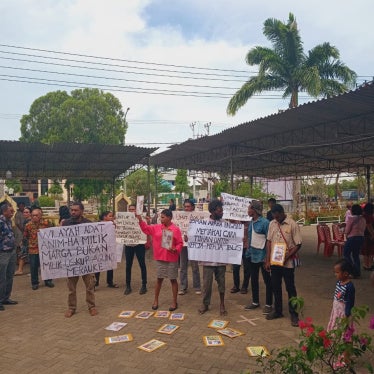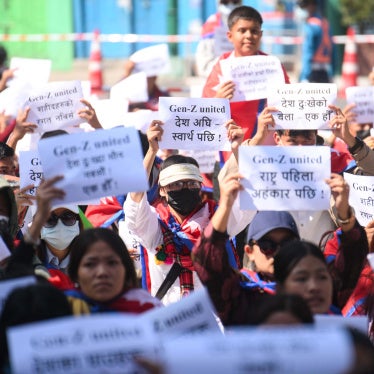In May, George W. Bush told Boeing aircraft workers, "When I am president, China will know that America's values are always part of America's agenda. Our advocacy of human rights is not a formality of diplomacy. It is a fundamental commitment of our country." One meaningful way President-elect Bush can make good on that commitment once he's in office is to give a high priority to setting up a congressional-executive commission on human rights in China -- and to make sure it has teeth.
The bill enacted last year granting China permanent normal trade relations required the establishment of such a body, modeled after a similar commission set up in the 1970's to press the former Soviet Union and its East European bloc allies for compliance of the Helsinki accords. The new commission is charged specifically with monitoring and promoting human rights, labor rights and religious freedom in China. But applying this model to China won't be easy. Beijing isn't a party to an agreement like the Helsinki pact. And China's leaders have already vigorously attacked the idea of the commission, vowing they won't cooperate.
As China prepares to join the World Trade Organization later this year, prospects for significant human rights improvements appear slim. The likelihood of more worker and rural unrest is high and the Communist Party is already intensifying its crackdown on unofficial religious groups. New restrictions have been placed on use of the Internet -- a tool for the country's economic development, but for the Party leadership also a worrisome vehicle to incite "subversion."
In creating the new commission, the PNTR law requires Mr. Bush to appoint five members, one each from the State Department, and Labor and Commerce departments, plus two at-large members. The House and Senate will also choose nine members each.
A commission packed with China-bashers will have no hope of sending high-level delegations to China in advance of Mr. Bush's expected visit to Shanghai this October for the Asia-Pacific Economic Cooperation summit. And getting observers into China to monitor trials or promote legal reforms will also be a non-starter.
On the other hand, a toothless commission charged with issuing an annual report assessing human rights that is put on the shelf and promptly ignored, won't work either.
The White House should move quickly, therefore, together with Congress, to appoint a balanced, credible commission that includes members with influence who Beijing can't easily ignore, as well as those with a proven track record on human rights and workers' rights. Furthermore, they should push for legislation that greatly increases the commission's paltry budget ($500,000) for staffing and activities this year.
Even more crucial is for Mr. Bush to take the lead in proposing that the commission's recommendations for policy actions be subject to an annual debate and vote in Congress.
Obviously the new administration needs a human rights policy that goes beyond the commission in order to exert significant pressure on Beijing. But focusing on getting this commission up and running serves several purposes. It provides a new tool for addressing human rights concerns. It provides a useful forum for congressional and White House partnership on a critical foreign policy issue. And it will show that the Bush administration is willing to go beyond empty rhetoric on human rights of the "trade promotes freedom" variety that Mr. Bush himself has so frequently invoked.
The new president can set the right tone in his relations with China early on in his administration by making it clear he won't sacrifice human rights to security or economic concerns. Mr. Bush must take principled, pragmatic action to back up his campaign rhetoric. This is one way to start.
Mike Jendrzejczyk is Washington, D.C. Director of Human Rights Watch's Asia Division.








